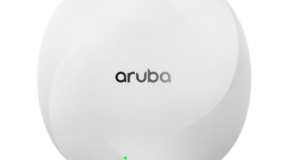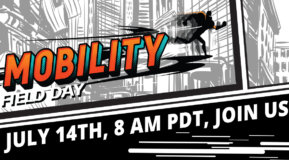Nabiha Raza’s software engineering career started at the National University of Sciences and Technology in Islamabad, Pakistan. Today, she is getting her master’s in computer science at Rochester Institute of Technology (RIT) in New York and in her last semester at RIT. She researched how wearables can detect spinal cord reflexes and was twice an intern at Aruba. Her interest lies in networking, distributed systems and cloud computing. In January 2021, Nabiha will be joining us back as a full-time software developer engineer for the High Touch Services Team. She’s also a big home improvement and home automation fan!
 Sylvia: What makes you passionate about technology?
Sylvia: What makes you passionate about technology?
Nabiha: Very early in my life, I realized that technology is the driving point for everything—well almost everything! How the hardware chips connect with software to do amazing things always caught my eye. Growing up, I was interested in physics and mathematics, which is the building blocks of technology. Today, it still amazes me and that’s what I love about it.
As Isaac Asimov very rightly said and I quote, "I do not fear computers. I fear lack of them.” I think it explains my passion for my profession in a nutshell.
Why did you choose an internship at Aruba?
Aruba has a unique way of doing research and development. I wanted to work for the “biggest small company” and since networks became my emerging interest while pursuing my masters, it was the right choice to make. What motivated me even more was Aruba’s mission to be the Edge-to-Cloud platform upon which Aruba’s customers innovate in the mobile, IoT, and cloud domain and I thought it was a perfect package for me to start my career as a software developer engineer with a mix of computer networks and software development.
What are your key responsibilities for your internship?
This is my second internship at Aruba, and I have been offered a full-time job when I finish my masters.
During my internship, I worked on a couple of projects and architected and developed cloud native microservices based software application and my code was deployed on the switches of the customer which was a very rewarding experience for me. Also, I worked on building internal automation tools for our team to increase the productivity of our engineers and made the hectic, manual work into an automated application with a smooth interface to get things done in just a couple of clicks. It can be expanded to cater a lot of more teams because of its scalable architecture.
In one of the projects I did last year, I developed an application using APIs to deploy customer settings on a large level of switches. I interacted with product managers, held meetings and took charge of the project and then when it was my time to leave as my internship was coming to an end, I told one of the PMs that I have to hand over the project and the project manager was shocked and said I didn’t have any idea that I was an intern. That was a great moment in itself.
How does having a virtual internship change the experience for you?
Last May, I was in Santa Clara, and my internship was extended until December but this year unfortunately we have to work remotely. I am working from Rochester, NY.
Nothing beats the in-person meetings. Quick coffee break to catch up with colleagues, managers and the team. Somewhere between those daily lunches and ping-pong games, we bonded to become better friends, colleagues and understood each other on personal levels. I definitely miss that and the office culture.
Having said that, I would also mention that the remote internship superseded my expectations. We have a proper schedule everyday that’s keeps us on track followed by daily standup meetings which keeps the team in sync and the deliverables on time. On a brighter side, in the remote internship, there is less time spent on the roads and more on the work which has allowed me to complete more work in less time.
What do you like about Aruba’s corporate culture?
I’m having the time of my life here. I really like the company and its values and how people appreciate the work you do.
It’s Aruba’s culture: You’re not treated as if you are the lowest in the hierarchy. It allows me to take leadership in my own project and I feel like I’m trusted and valued.
It’s so easy to talk to my manager, director and VP. The feeling that you are being taken care of and you are valued is what makes this company so good. This is what drives me to do even better and instills trust in the employee for sure.
What is your career path?
I will finish my masters in December, and then in January, I will join Aruba full time. Fingers crossed!
What tips would you provide to students applying for internships next year?
To get started, make a good resume. You have 30 or 60 seconds for a recruiter to look at it, and if it’s not appealing, you are more likely not to be interviewed.
Do the research when you apply for an internship. Are you a fit for them? What are you looking for? Why are you interested in joining them? Prepare for the interview. Be very focused. People are more tense during an interview and things are more likely to fall apart. It’s challenging, but you are preparing and building yourself.
At Aruba, get a good background in networking. I took the initiative to get up to speed in networking and I’m taking a computer networking class as part of my masters’ program this summer. I knew that if I didn’t have the basics, my path may waver in advancing at a company.
Once you are at your internship, try to meet your deadline and be on time for everything. It’s OK if you are stuck on a bug, but your manager should be rest assured the work will be done if it’s given to you. He or she shouldn’t have to ask again. You should give your manager status updates weekly. Make notes for everything. The notes don’t have to be fancy, but keep it organized. That’s the key element.
If you can’t solve a problem, don’t wait a couple of weeks to tell your manager. I’m an early red flag riser. When I tell my manager, I need help and explain everything I’ve tried, he can assign someone to mentor me. You have to make an impact on your own and eventually things will fall in place. Slowly but surely!




